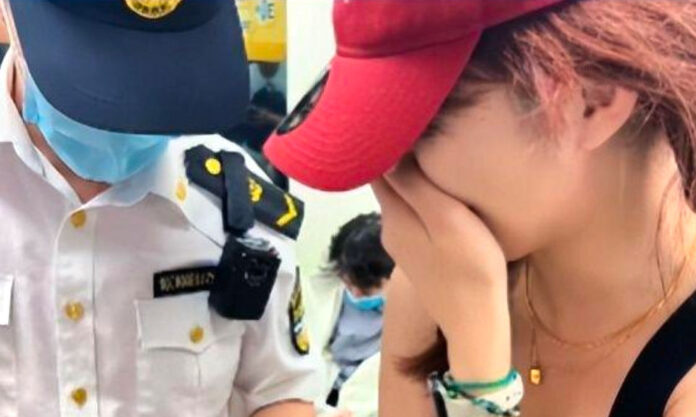Heated discussions among Nanjing residents of late that were the result of a lady being issued a ticket for drinking while riding the Nanjing Metro have got many asking fundamental questions, such as, “Why”, and, “What do other cities do?”.
At 20:45 on 17 July, Nanjing Metro staff found the female passenger drinking some bottled-fruit juice while they were doing their regular inspection of a train on Line 3.
It is important to note at this stage that the lady did not receive a fine, rather a notice officially informing that her actions are against Nanjing Metro regulations.
According to the Nanjing Metro official website, those who are dissuaded from their eating or drinking on Metro trains and rectify their behaviour in a timely manner will not be punished.
The website also states that there are different discretionary ranges in available punishments dependant on circumstances, from warnings to fines of between ¥20 and ¥50. This is where it gets tricky from a legal standpoint. Lawyers point out that as an organisation with the function of managing public affairs, there are legal restrictions as to the extent of its administrative-penalty power.
It should also be noted that exceptions can be made. On 25 July, a reporter for The Paper called the Nanjing Metro and spoke with a member of staff who confirmed that passengers needing to take medicine or in physical discomfort may drink water or ask staff for assistance.
But what are the actual reasons for the regulations banning eating and drinking on the Nanjing Metro?
Firstly, spilt drinks may cause passengers to slip and fall, therefore the regulations are a safety measure.
In addition, some foods are very odorous, which in the confines of a congested metro carriage would be off putting to many, if not all, passengers.
Lastly, from the standpoint of sanitation efficiency, the regulations are a time-saving measure. From the time a train arrives at its terminus, Metro sanitation workers have just 2 minutes to clean the train before it begins its return journey. The last thing they need is your KFC wrapper.
How do other cities in China handle eating and drinking on their metro systems?
Looking to good-old Wuhan first, Article 38 (9) of the “Wuhan Rail Transit Management Regulations” that came into effect on 1 October, 2020, stipulates that eating on trains is prohibited. When a reporter called Wuhan Metro and asked if there was a prohibition on drinking water,, a member of staff merely reiterated the “no eating” rule.
Up north, according to the “Beijing Rail Transit Passenger Regulations”, those riding the Beijing Subway should consciously maintain the environmental sanitation of stations and carriages, ride in an orderly fashion and not eat in train carriages. Exceptions are made for babies and those with medical conditions.
Closer to home in Hangzhou, on 25 July, staff of the Hangzhou Metro advised that according to their regulations, passengers are not allowed to eat or drink on station platforms or in carriages.
But same staff member also said that in the actual implementation process, if a passenger just has a sip of water or eats a sweetie, generally no Metro staff will stop it. They may dissuade, but they have no right to a issue a fine.









